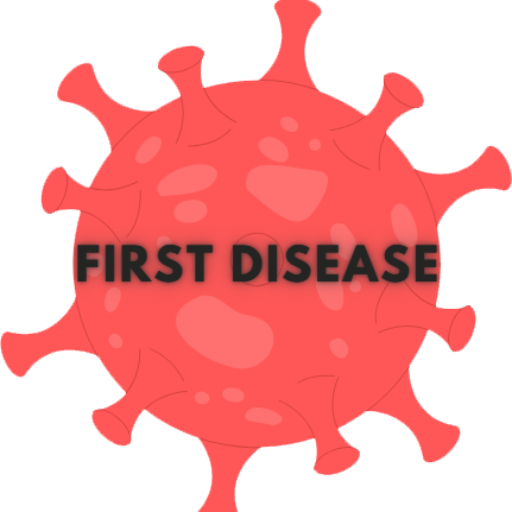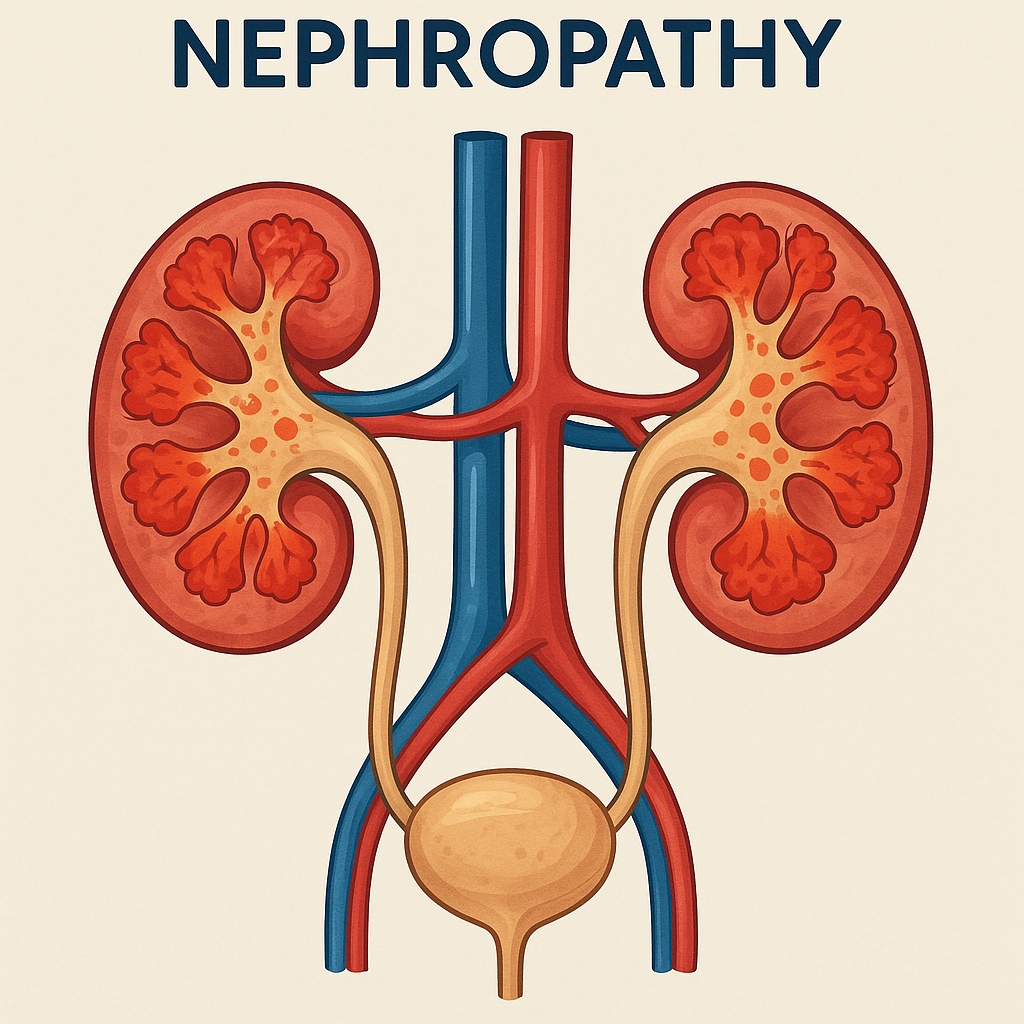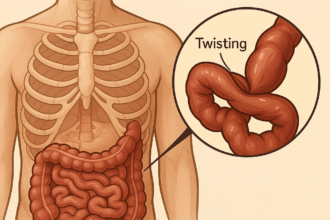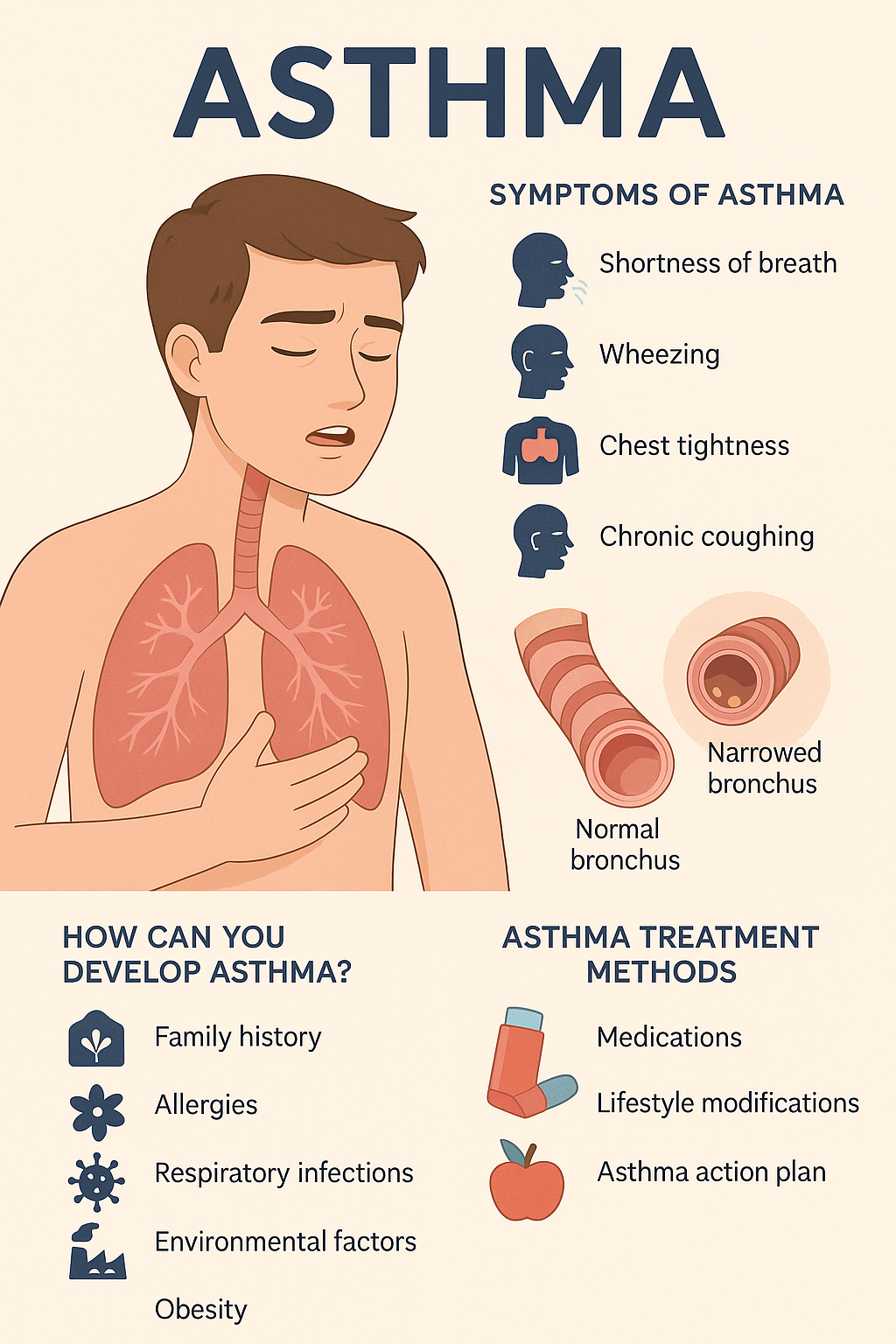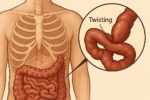Nephropathy
Nephropathy refers to a group of disorders involving damage to the kidneys, either structurally or functionally. The kidneys are vital organs that filter waste products from the blood and remove them through urine. When this filtering process is impaired, it can lead to various systemic problems.
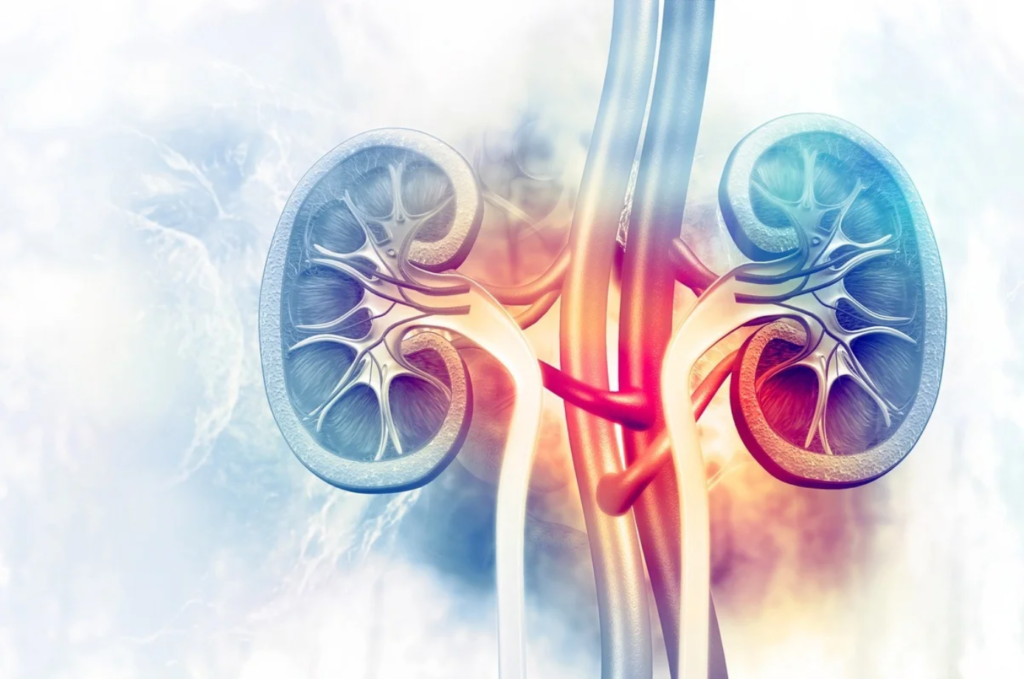
🔍 Types of Nephropathy
1. Diabetic Nephropathy
The most common type of kidney disease, caused by long-term, poorly controlled diabetes.
- Symptoms: Protein in urine, swelling, high blood pressure.
- Affected population: 30–40% of people with diabetes.
2. Hypertensive Nephropathy
Results from long-term high blood pressure damaging the blood vessels in the kidneys.
- Symptoms: Uncontrolled blood pressure, fatigue, frequent urination at night.
3. Glomerulonephritis
Inflammation of the glomeruli—the kidney’s filtering units. Can be acute or chronic.
- Symptoms: Blood in urine, swelling, high blood pressure.
4. Polycystic Kidney Disease (PKD)
A genetic condition causing cysts to form in the kidneys.
- Symptoms: Abdominal pain, blood in urine, urinary tract infections.
⚠️ Common Symptoms
Nephropathy may progress silently in early stages. Watch for these signs:
- Frequent urination (especially at night)
- Foamy urine (indicating protein)
- Swelling around eyes, ankles, or feet
- Fatigue and weakness
- Loss of appetite, nausea
- Itching, dry skin
- High blood pressure
🧪 Diagnosis
- Urine Test: Checks for protein (proteinuria) or blood.
- Blood Test: Measures creatinine and urea for kidney function.
- Glomerular Filtration Rate (GFR): Estimates how well the kidneys filter blood.
- Ultrasound/CT: Evaluates kidney size, structure, and presence of cysts.
- Biopsy: May be done for definitive diagnosis.
🩹 Treatment Options
Treatment depends on the cause and stage of the disease. The main goal is to slow or stop kidney damage.
✅ Key Treatment Principles:
- Control blood sugar and blood pressure
- Limit salt and protein intake
- Medications: ACE inhibitors, ARBs (help protect kidney function)
- Treat infections: Especially urinary tract infections (UTIs)
- Dialysis or Kidney Transplant: In end-stage kidney disease (ESKD)
📊 Stages of Chronic Kidney Disease (CKD)
| Stage | GFR (mL/min) | Description |
|---|---|---|
| Stage 1 | >90 | Normal function, mild damage |
| Stage 2 | 60–89 | Mild loss of function |
| Stage 3 | 30–59 | Moderate damage |
| Stage 4 | 15–29 | Severe damage |
| Stage 5 | <15 | Kidney failure (dialysis may be required) |
🥦 Prevention & Lifestyle Tips
- Reduce salt intake
- Exercise regularly
- Monitor blood sugar and blood pressure
- Avoid smoking
- Avoid unnecessary medications (especially NSAIDs)
- Get annual kidney checkups (especially if diabetic or hypertensive)

📚 References
- Turkish Society of Nephrology
- National Kidney Foundation (NKF)
- Mayo Clinic – Nephropathy Overview
- World Health Organization – Chronic Kidney Disease Factsheet
